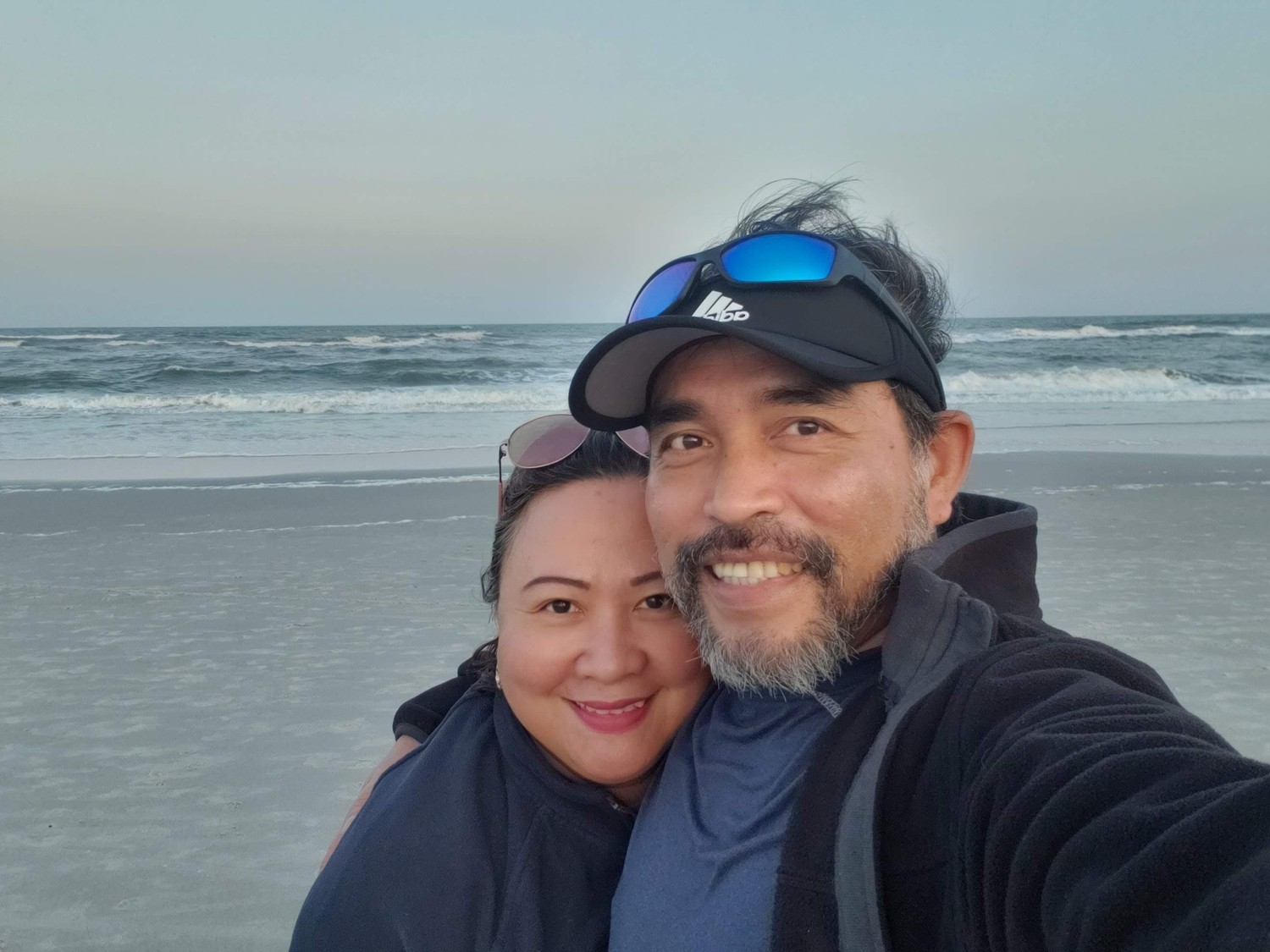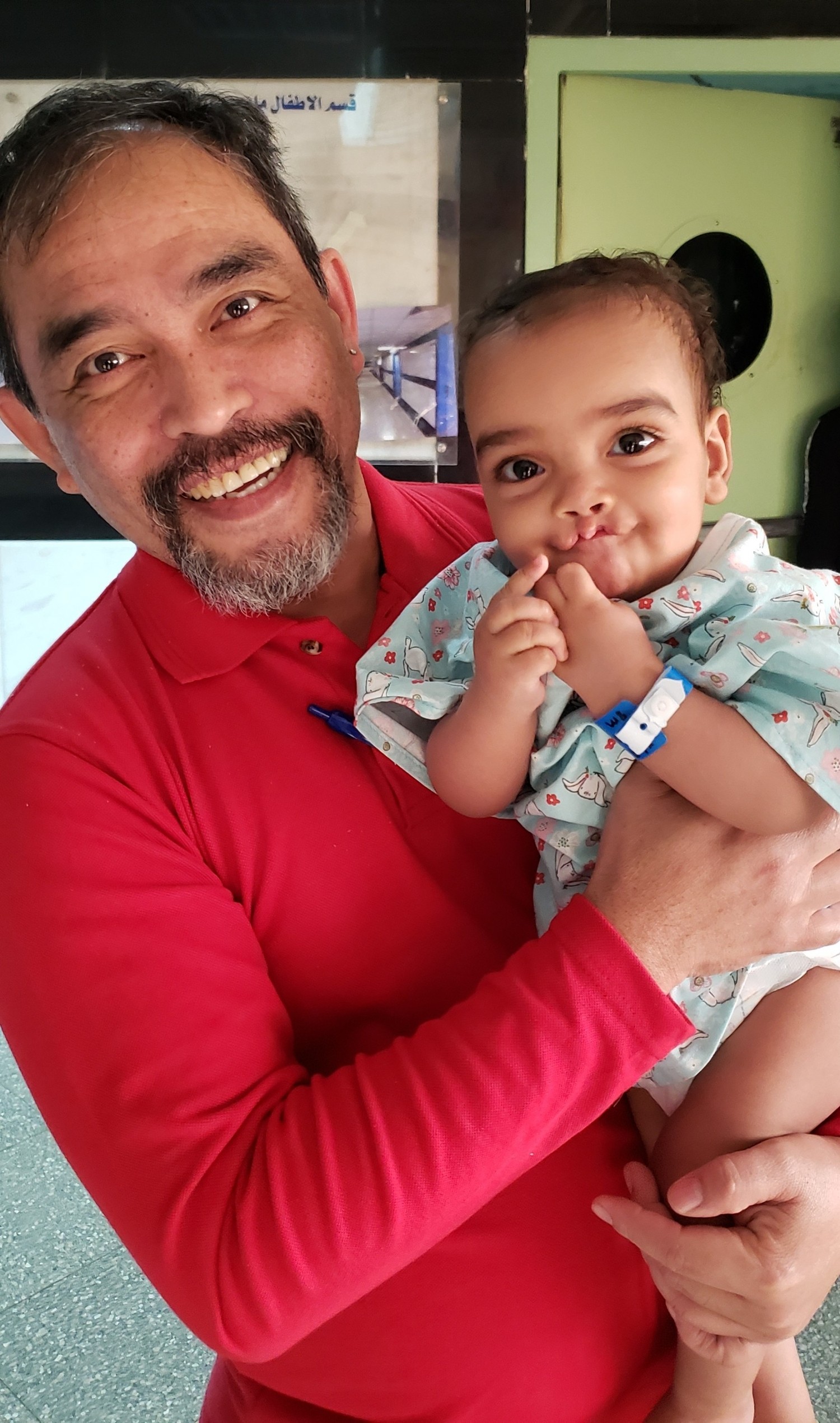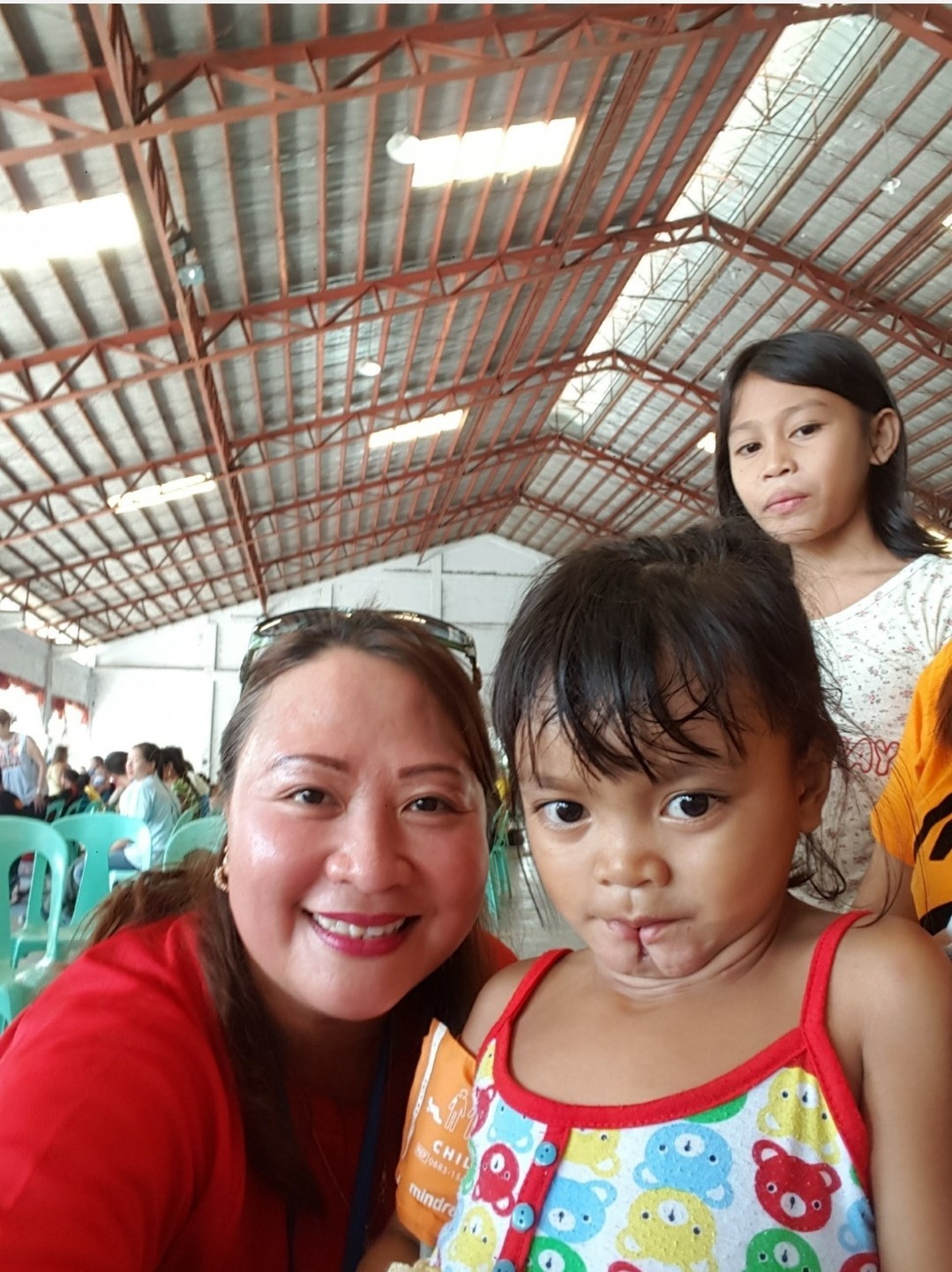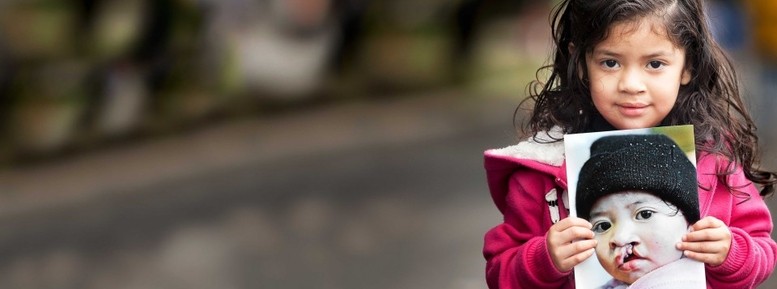
Our promise of improving health and dignity during the COVID-19 pandemic endures. We're helping front-line health workers stay safe, nourished and empowered to better serve their patients by providing life-saving supplies and equipment, as well as remote training to bolster their response. We’re also providing nutritional assistance, hygiene kits and virtual health services to support people and their health needs so they can thrive. If you can, when you can, help us keep our promise to care for children and create hope for tomorrow.
Learning that a family member received surgery from Operation Smile initially inspired Marijose and Rodney Kapunan to become volunteers, but it’s their selfless desire that motivates them to risk everything today in an effort to support patients through these challenging times.
“Growing up poor in the slums of Manila, I always dreamed of getting out of poverty and being able to practice in a caring and well-respected profession, travel the world and give back to my country and community,” Rodney said. “I’m not rich financially, but I feel abundant that I’m able to share my blessings.”
Bonded as nurses, parents and devoted volunteers, the duo feels united as they serve a role in confronting the devastating impacts of the COVID-19 pandemic together.
Having delivered care to children on more than 25 Operation Smile medical missions combined, Marijose and Rodney are now applying that commitment, skill and unwavering compassion to touch the lives of patients affected by the coronavirus.
“We nurses are in the front, center and back in the fight against this global pandemic,” Marijose said. “Nurses are valuable assets in formulating plans and processes to better manage the disease and prevent future outbreaks.”
We recently sat down with Marijose and Rodney to hear more about what precautions they’re taking to protect the ones they love as well as where their eagerness stems from when they speak about one day getting back into the field for Operation Smile.

Q: What inspired you to become a nurse?
Rodney: “I get a lot of accomplishment and pleasure in helping people and the community in any way I can. It gives me an opportunity to positively impact patients by providing comfort to people throughout their most vulnerable moments, being an advocate, confident and a trusted adviser. I also like talking to people, making genuine connections and being able to inspire and motivate my patient to be able to overcome their illness and be a productive member of society. Lastly, I always wanted to be in a profession that is well respected, trusting and where I can exercise compassion on a daily basis. I can easily do that in this profession.”
Q: With both of you working on the front lines in your hospitals, what precautions do you take to ensure the safety of patients, your children and other members of your family?
Marijose: “When Rodney or myself comes home from work, we strip off our clothes in the laundry room, separate our laundry from our children’s and shower before we even see our kids.”
Rodney: “I work in the emergency room, which is still receiving a lot of patients. The ER has to be restructured because of the coronavirus. So, aside from working, we’re also formulating ways to make our patients safe and us as well. Entering this profession, I always knew that there was going to be a risk. We have to be more vigilant. It’s scary. We’re trying to not only find ways to be safe in the hospital, but at home as well so that we will not spread it to our kids. I don’t blame people for being scared. We try to be a good resource for friends and family.”
Q: What is the environment like in your hospital? What limitations have you and your other medical professional faced?
Rodney: “We are still on lockdown, visitors are still restricted, we are still screening, checking temperatures and masking everyone who comes inside our facility. We’re required to wear level one masks all the time and complete personal protective equipment (PPE) and an N95 mask if patients check in with flu-like symptoms. Especially now, all the hospitals are on heightened alert for a possible outbreak.”
Marijose: “The most obvious limitation we had during this pandemic was a lack of preparedness on this kind of situation. Guidelines were changing almost every day and morale and confidence of the employees were low because they were scared of the disease and scared of losing their jobs. We also had problems with PPE distribution and inventory because we’re masking everyone that steps in the hospital. I just hope that after this pandemic, processes will be established to better prepare ourselves if anything like this happens again.”
Q: What have you learned or experienced from being a volunteer with Operation Smile that’s helped prepare you for responding to COVID-19?
Marijose: “Before the start of every mission, safety is emphasized. Safety of volunteers, patients and their families take priority. Once safety is established, take a deep breath, and gather as much information as possible and collaborate with team leaders for the course of action. Lastly, trust the plan and processes in place and evaluate the appropriateness of the plan.”
Q: In the light of this pandemic, why do you feel it’s so important to recognize nurses and the role they serve in the medical field?
Marijose: “As the largest sector of health care workers in every country, we nurses are in the front, center and back in the fight against this global pandemic. Nurses are on the front line triaging patients and sorting out possible patients with the virus and quickly moving them to be quarantined and protecting other patients who may not have the disease. Nurses are also in the middle of the action, taking care of patients in the intensive care unit, assisting in medical and surgical procedures, making certain medical supplies and PPE are maintained and protected.
“Enforcing sanitation and hand-washing, answering calls from the public and giving up-to-date information regarding the disease. And increasingly, nurses are valuable assets in formulating plans and processes to better manage the disease and prevent future outbreaks. Nurses are such a valuable part of the medical team and thus deserving of all recognition for what they do.”
Q: It’s a very stressful time in our world right now. How are you and your family doing personally with the impact this virus has placed on you? What emotions are you feeling as you continue to face this crisis head on?
Rodney: “Right now, we are staying positive and optimistic. We keep our faith to God and always pray for protection and strength. We as a family are staying humble and grateful, that despite my wife and I are both working in the hospital, we are both in good health and have not brought the virus home.”
Marijose: “We are staying vigilant with our hand-washing and infection control plans for home. We are also adjusting to home schooling our kids, doing more indoors activities, like sewing masks and learning a new language to occupy our time. We’re also educating our family that this virus is with us now and that social distancing and wearing masks is the new world once society starts opening up.”
Q: What motivates you to continue volunteering for Operation Smile even after the pandemic ends?
Marijose: “I believe in this organization. There is always hope. I’m encouraged and touched by the outcomes because I work in the operating room for Operation Smile missions and I see the before and after.”
Rodney: “It’s always a blessing to be a part of it. It’s hard work, we leave our family behind, but I always tell my wife, ‘We always go back thinking that we receive more than we actually give.’ I still find joy and accomplishment in what I do, I feel that I still have a lot of love and care to give to my patients. I still enjoy detective work, seeing a wide variety of patients, having more autonomy in their care, learning new life-saving techniques and most importantly, I still love making a difference in a single person’s life and my community.”

Latest Stories

Beyond Surgery: Inspiring Moments with Operation Smile in Peru

Meet Camila and Mateo and Their Moms

